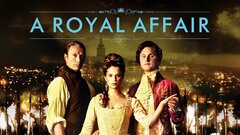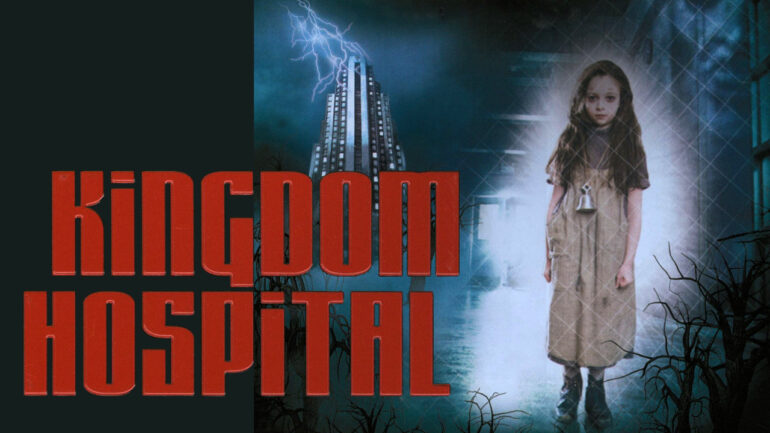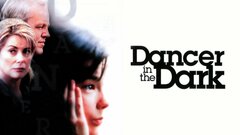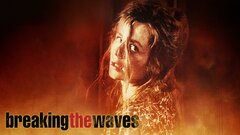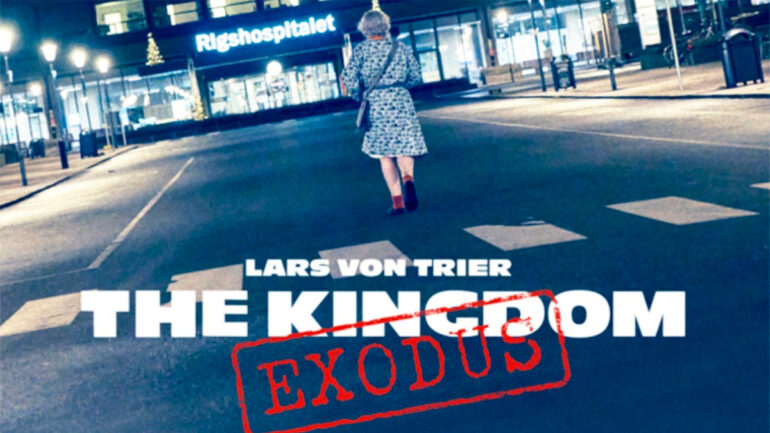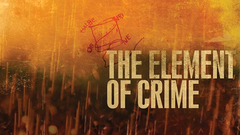Director and screenwriter Lars von Trier is one of the splashiest talents that Danish - indeed European - cinema had produced in years. His reputation as one of a few genuine "enfants terribles" of cinema in the 1980s and 1990s did not stem simply from his call for Ingmar Bergman's death - so, he said, that other Scandinavian filmmakers could receive more attention - or his hurling an obscenity at Roman Polanski when his film "Europa" (1991) failed to receive the Palme d'Or at Cannes. Rather, the attention von Trier justly received stemmed from his playful experimentation and the darkly haunting atmosphere he evoked in settings which, whether set in the present like "Dancer in the Dark" (2000) or the past like "Dogville" (2004) somehow seemed futuristic and other-worldly.
Part of von Trier's inventiveness stemmed from his refusal to honor conventions - exemplified by his famous Dogma 95 manifesto, in which von Trier and fellow Danish filmmaker Thomas Vinterberg called for films to be made more simply, with hand-held cameras and available light, divesting themselves of modern fashions in filming and plotting. There was little doubt that the outspoken von Trier created films that were unmistakably - and unapologetically - entirely his own.
Born on April 30, 1956 in Copenhagen, Denmark, von Trier became fascinated with film after receiving a Super-8 camera as a present for his 11th birthday. Growing up in what the director later described as a very emotionally cold home, von Trier discovered that through the medium of film he could explore complex questions and ideas that were never discussed by his parents - both of whom were devout atheists, as well as nudists. Much later in life, von Trier learned from his mother on her deathbed that the man who had helped raise him was, in fact, not his biological father. As it turned out, his actual father was a high-ranking bureaucrat of German descent - a shocking revelation for von Trier, who had always assumed he was Jewish. His unorthodox upbringing later paved the way for von Trier to suffer from occasional bouts of severe depression and to struggle with a host of phobias.
In the late 1970s, he entered the National Film School of Denmark, where he tacked on the admittedly precious "von" in front of his last name as a homage to film director Erich von Stroheim. During his time in film school, von Trier directed the award-winning shorts "Nocturne" (1980) and "The Last Detail" (1981), before graduating with his final project "Images of a Relief" (1982). The nearly hour-long film was set in the chaotic days after the liberation of Denmark in 1945, and featured a Nazi officer as its protagonist. It would be von Trier's first film to spark heated debate by admirers and detractors alike, but it certainly would not be his last.
Best known for his "Europa" trilogy on the theme of Europe, von Trier directed "The Element of Crime" (1984), a near-future mystery in which a detective must merge his psyche with a killer's in order to catch the murderer. The self-referential second installment of the trilogy, "Epidemic" (1987), starred the director himself as a filmmaker preparing for a motion picture about a plague, unaware of the actual plague sweeping the country around him. He followed with a made for Danish television adaptation of the classic Greek revenge tale "Medea" (1988). Next for von Trier was "Zentropa" (1991), about a well-intentioned American who becomes involved in a pro-Nazi conspiracy in post-WWII Germany.
Together with his two previous theatrical releases, the films formed a potent allegorical critique of contemporary continental decay. Co-directed with Morten Arnfred, the frequently hilarious and often disturbing "The Kingdom I" (1994) & "The Kingdom II" (1997), were made as miniseries for Dutch television, but also released theatrically. A sly pastiche of TV medical dramas, it openly borrowed from -even parodied - David Lynch's cult series "Twin Peaks" (ABC, 1989-1991). It was with "The Kingdom" series that von Trier created a distinct technical style which made it easier to focus on the story and the actors, This was done by shooting mostly with a hand-held camera, and ignoring the usual rules of lighting, continuity and editing, resulting in distorted colors and grainy pictures. The show would later inspire a U.S. television drama as reinterpreted by horror novelist Stephen King, "Kingdom Hospital" (ABC, 2004).
Filmed in between "The Kingdom I" and "The Kingdom II," "Breaking the Waves" (1996) launched "The Golden-Heart Trilogy," von Trier's second feature film trilogy. Set along the rugged Scottish coastline, the film was a strangely epic love story of a wife urged by her paralyzed, impotent husband to find sexual satisfaction elsewhere. It brought the director mainstream attention, in addition to providing its star, Emily Watson, with a breakout role which would earn her an Oscar nomination.
Von Trier followed with the digitally shot "The Idiots" (1998) - his first to adhere to the Dogma 95 restrictions - in which a group of mischievous, attractive Nordics engage in the dubious pastime of behaving like mental defectives in public. Then came the acclaimed love-it-or-hate-it "Dancer in the Dark" (2000), starring Icelandic pop star Bjork as a simple-minded Czech immigrant in America who takes solace in old Hollywood musicals, even as she is slowly going blind. The trilogy was inspired by a sentimental children's book from von Trier's childhood about a little girl who is always ready to sacrifice herself to help others.
Von Trier began his next trilogy, "USA: Land of Opportunities," with "Dogville" (2004), his first film with major movie stars, including Nicole Kidman, Paul Bettany, Patricia Clarkson, Lauren Bacall, Ben Gazzara, Chloe Sevigny and James Caan. The film - which was unrepentantly anti-American in plot and tone - despite von Trier having never visited the country due to his fear of flying - focused on the arrival of Grace (Kidman), a mysterious woman on the run from gangsters in the small Rocky Mountain community of Dogville during the Depression. The outwardly pious citizens initially offer her sanctuary, but before long come to view Grace as property, subjecting her to mental and sexual abuse.
The second installment of the controversial trilogy came in the form of "Manderlay" (2005). Shot in the same style as "Dogville" - on a nearly bare soundstage, with minimal sets - the film featured actress Bryce Dallas Howard, replacing Kidman in the role of Grace, who finds herself at a Southern plantation where slavery still exists decades after the Civil War. Intended as an indictment of slavery by the filmmaker, many viewed the movie - a blatant allegory of the Iraq War - as being innately racist in and of itself.
Ever the innovator, von Trier shot his next film, "The Boss of it All" (2006), using a technique dubbed "Automavision," which allowed a computer program to independently select the cameras angles and framing choices. Ostensibly a screwball office comedy, "The Boss of it All" followed the owner of a small IT company who, in order to avoid being the "bad guy," invents a fictional company president on whom he blames all of the unpopular decisions. Things get complicated when he decides to sell the company and needs to produce his elusive boss for a prospective buyer.
For the collaborative project "To Each His Own Cinema" (2007), von Trier contributed the short film "Occupations," featuring Willem Dafoe. Delayed due to a debilitating depression that hospitalized the director for a time, von Trier returned with "Antichrist" (2009), reteaming him with Dafoe, in which the actor played the therapist husband of Charlotte Gainsbourg, a woman paralyzed by grief and guilt after the death of their infant son. After the man takes his wife to a remote cabin to recuperate, both she and the surrounding forest become increasingly malevolent. Extremely graphic in its depictions of sex and violence, the film polarized audiences when it screened at Cannes, where it received an "anti-award" from the festival's ecumenical jury.
With his next film, von Trier made the curious statement that he was through with having "happy endings" in his movies. Proof of his intent came with "Melancholia" (2011), the story of two sisters - Kirsten Dunst and Charlotte Gainsbourg - each coping with the fast-approaching end of the world in very different ways. Further solidifying his reputation as one of cinema's most controversial agent provocateurs von Trier became "persona non grata" at the 2011 Cannes Film Festival, when, after making semi-joking comments in which he expressed sympathy for Adolph Hitler and the Nazis at a press conference for "Melancholia," the director was promptly banned by the festival's board of directors. Responding to their decision, von Trier was characteristically unrepentant, saying, "I'm very proud of being persona non grata. I've never been that before in my life, and that suits me extremely well."


















